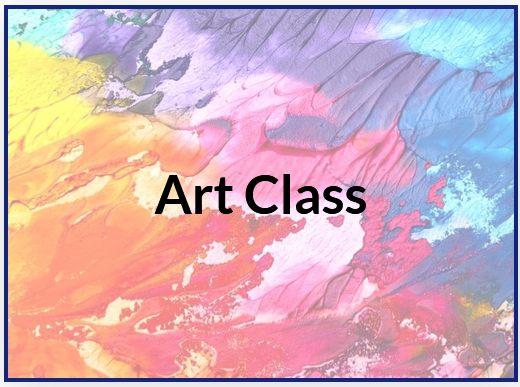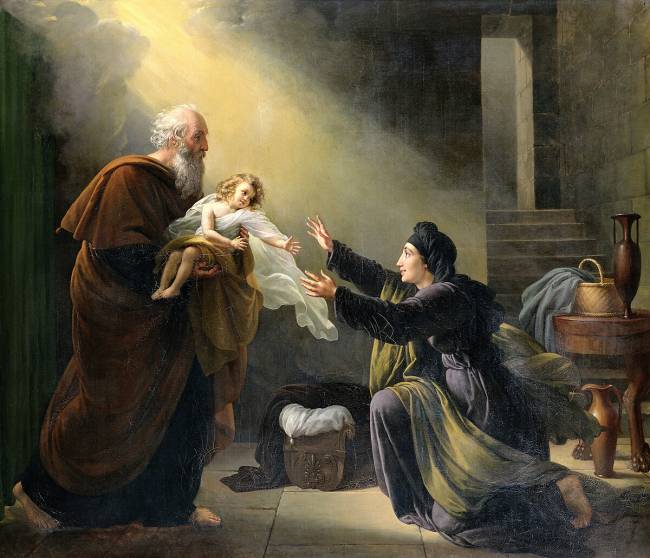Elijah and the Widow
The Elijah's stories have been an artistic subject for hundreds of years. Take a look at some of the artworks while you think about the story. The high quality photos may take a moment to load.

Simone Brentana - Elijah and the Widow of Zarephath

Simone Brentana, oil on canvas, unknown date 1656-1742
Who is in the painting that isn't in the room in the Bible story? Why is that person included in the painting? Where is Elijah looking in the painting? What does Elijah's body posture say? What feeling to you get about the widow from her posture? What do you think about the age of the child? Was this a different age than you imagined? What is the overall message of this artist?
Look at the light in the painting. Where is the light coming from? Who is in the light? Who is in the dark? What is the artist saying with their use of light?
Louis Hersent - Elijah Resuscitating the Son of the Widow of Zeraphath

Louis Hersent, painting, unknown date 1777-1860
The use of light and clouds is significant in the painting. What do the light and clouds represent. How does the light intersect each character?
Where is each person looking? What does their body language say? How is the feeling of this painting different than the last one. What message is the artist conveying with this art?
Bernardo Strozzi - Prophet Elijah and the Widow of Sarepta

What is in Elijah's hand? What does it represent? What is in the widow's hands? What does it represent? What is in the boy's hand? What does it represent? Where are Elijah and the widow looking? Where is the boy looking?
Let's think about character placement in the painting. Why is the boy placed between Elijah and the widow? Why is no one looking at the boy? What message is the artist conveying by placing the boy at the center of the painting?
Giovanni Lanfranco - Elijah receiving Bread from the Widow of Zarephath

Giovanni Lanfranco, oil on canvas, 1621-1624, viewable at the Getty Center
The widow is offering Elijah bread. Where is Elijah looking? What does his body language say? Why is he on the ground? Why is he supporting his own hand? Why is he looking up to the widow? Where is the widow looking? What does her body language say? Why is she the tallest figure in the painting? Where is the boy looking?
Think about character placement in this painting. Why is the widow in the center between the other people? How is this artist's message different than the previous painter? What is the artist's overall message do you think? Do you feel any emotions from this painting?
Simone Brentana (1656-1742), Public domain, via Wikimedia Commons
Louis Hersent, Public domain, via Wikimedia Commons
Bernardo Strozzi, Public domain, via Wikimedia Commons
Getty Center, Public domain, via Wikimedia Commons